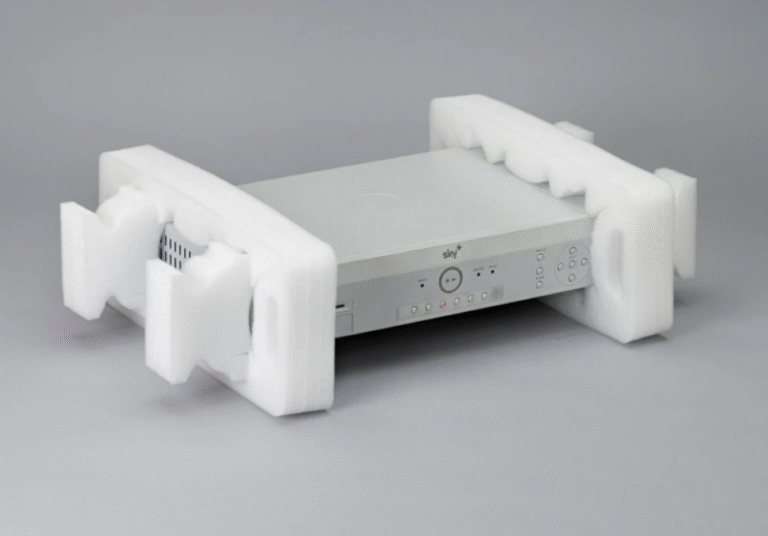Poway’s Best Snoring Treatments: A Guide to Better Sleep
Understanding the Causes of Snoring in Poway
Snoring, a common issue affecting many in Poway, isn’t just a nighttime annoyance; it can sometimes point to more serious underlying health concerns, like sleep apnea in Poway. Understanding what causes snoring is the first step toward finding effective snoring treatment in poway and improving your sleep quality. Let’s break down the common culprits.
Anatomical Factors Contributing to Snoring
Our physical makeup plays a big role in whether we snore. The shape of your mouth, nose, and throat can all contribute to airway obstruction. For example:
- Enlarged Tonsils or Adenoids: These can block airflow, especially in children.
- Deviated Septum: A misaligned septum can narrow nasal passages.
- Long Uvula or Soft Palate: These can vibrate more easily, leading to snoring sounds.
These anatomical issues can be congenital (present at birth) or develop over time. It’s worth noting that even slight variations in these structures can significantly impact airflow during sleep.
Lifestyle Choices and Snoring Severity
What we do during the day definitely affects how we sleep at night. Certain lifestyle choices can make snoring worse. Here are a few:
- Alcohol Consumption: Relaxes throat muscles, increasing the likelihood of snoring.
- Smoking: Irritates and inflames the airways, making them narrower.
- Weight Gain: Excess weight, especially around the neck, can put pressure on the airway.
Making changes to these habits can often lead to noticeable improvements in snoring. It’s about finding what works for you and sticking with it.
Medical Conditions Linked to Snoring
Sometimes, snoring isn’t just a standalone issue; it can be a symptom of an underlying medical condition. Sleep apnea in Poway is a prime example, but other conditions can also contribute:
- Allergies: Nasal congestion from allergies can obstruct airflow.
- Sinus Infections: Similar to allergies, sinus infections can cause nasal congestion and snoring.
- Hypothyroidism: In some cases, this condition can lead to tissue swelling around the airway.
If you suspect a medical condition is contributing to your snoring, it’s important to consult with a doctor for proper diagnosis and snoring treatment in poway. Addressing the underlying condition can often alleviate the snoring problem.
Recognizing the Signs of Sleep Apnea in Poway
It’s easy to dismiss loud snoring as just an annoying habit, but it can sometimes be a sign of something more serious: sleep apnea. Sleep apnea in Poway is a condition where you repeatedly stop and start breathing during sleep. Recognizing the signs early is super important for getting the right snoring treatment in Poway and avoiding potential health problems down the road. Let’s break down what to look for.
Common Symptoms Beyond Loud Snoring
Okay, so you snore. But how do you know if it’s just snoring or something else? Here are some things to watch out for:
- Gasping or choking sounds during sleep: This is a big one. If your partner notices you suddenly gasping for air, it’s a red flag.
- Frequent awakenings: Waking up a lot during the night, even if you don’t fully remember it, can be a sign.
- Morning headaches: These aren’t just any headaches. They tend to be dull and persistent, and they happen because your brain isn’t getting enough oxygen during the night.
- Dry mouth or sore throat: Waking up with a parched throat is another common symptom.
Daytime Fatigue and Cognitive Impairment
This is where sleep apnea really starts to mess with your life. It’s not just about being tired; it’s about how that tiredness affects your ability to function.
- Excessive daytime sleepiness: Feeling like you could fall asleep anywhere, anytime. Even after a full night’s sleep (or what you think is a full night’s sleep).
- Difficulty concentrating: Trouble focusing at work or school. Your brain just feels foggy.
- Irritability: Being easily annoyed or short-tempered. Lack of sleep does that to you.
- Memory problems: Forgetting things more often than usual.
It’s easy to brush off these symptoms as just being stressed or overworked, but if you’re experiencing several of them, it’s worth considering sleep apnea. Ignoring these signs can lead to more serious health issues.
Health Risks Associated with Untreated Sleep Apnea
Untreated sleep apnea isn’t just about feeling tired. It can have some serious long-term health consequences. Here’s a quick rundown:
- High blood pressure: Sleep apnea can put a strain on your cardiovascular system.
- Heart problems: Increased risk of heart attack, stroke, and other heart-related issues.
- Type 2 diabetes: Sleep apnea can affect how your body processes glucose.
- Liver problems: Some studies have linked sleep apnea to non-alcoholic fatty liver disease.
| Health Risk | Description
Non-Invasive Solutions for Better Sleep
If you’re exploring snoring treatment in Poway, you might want to start with non-invasive methods. These approaches often involve lifestyle changes and simple devices that can significantly reduce snoring and improve sleep quality. It’s always a good idea to try these before considering more intensive treatments, especially if you’re just starting to experience sleep issues.
Lifestyle Adjustments for Snoring Relief
Making changes to your daily habits can have a big impact on snoring. Sometimes, the simplest adjustments are the most effective. Here are a few things you can try:
- Weight Management: Losing even a small amount of weight can reduce snoring, especially if you’re overweight. Excess tissue around the neck can compress the airway.
- Alcohol Consumption: Avoid alcohol, especially close to bedtime. Alcohol relaxes the throat muscles, making snoring more likely.
- Smoking Cessation: Smoking irritates the airways, leading to inflammation and increased snoring. Quitting smoking can improve your breathing and reduce snoring.
- Hydration: Staying hydrated helps keep the secretions in your nose and soft palate soft and sticky. Dehydration can lead to increased snoring.
I remember when I cut out late-night snacks and started drinking more water during the day. It wasn’t a miracle cure, but it definitely made a difference in my snoring. My wife noticed it right away, which was a relief.
Positional Therapy and Sleep Aids
How you position yourself during sleep can greatly affect snoring. Positional therapy involves finding ways to keep you from sleeping on your back, which often worsens snoring. Sleep aids can also provide some relief.
- Sleeping on Your Side: This is often the easiest and most effective positional therapy. You can use pillows or specially designed devices to help you stay on your side.
- Elevating Your Head: Raising the head of your bed by a few inches can help open up your airways. You can use bed risers or a wedge pillow.
- Anti-Snore Pillows: These pillows are designed to support your head and neck in a way that promotes better airflow. They come in various shapes and sizes, so you might need to experiment to find one that works for you.
- Nasal Strips: These adhesive strips are applied to the bridge of the nose to help open up nasal passages. They can be particularly helpful if you snore due to nasal congestion.
Oral Appliances for Airway Support
Oral appliances are devices that you wear in your mouth while you sleep to help keep your airway open. They’re often recommended for people with mild to moderate sleep apnea in Poway or those who snore but don’t have sleep apnea.
- Mandibular Advancement Devices (MADs): These devices look like mouthguards and work by gently moving your lower jaw forward. This helps to open up the airway and reduce snoring.
- Tongue-Retaining Devices (TRDs): These devices hold your tongue in place to prevent it from falling back and blocking your airway. They can be a good option if your tongue is contributing to your snoring.
Before using any oral appliance, it’s important to consult with a dentist or sleep specialist. They can help you choose the right device and ensure that it fits properly. Improperly fitted appliances can cause jaw pain or other dental problems. Finding the right snoring treatment in Poway can be a journey, but these non-invasive options are a great place to start.
Advanced Treatments for Sleep Apnea in Poway
So, you’ve tried the lifestyle changes, maybe even an oral appliance, but you’re still struggling with sleep apnea in Poway? It might be time to consider some more advanced treatments. Let’s break down what those options look like.
CPAP Therapy: A Gold Standard Treatment
CPAP, or Continuous Positive Airway Pressure, is often the first line of defense when other methods don’t cut it. It involves wearing a mask over your nose and/or mouth while you sleep, which delivers a constant stream of air to keep your airway open. It sounds a little intimidating, but many people find it incredibly effective.
Here’s what you need to know:
- It’s highly effective at reducing or eliminating apneas.
- Different mask types are available to suit various preferences.
- Regular maintenance and cleaning are essential for optimal performance.
CPAP therapy can feel cumbersome at first, but sticking with it often leads to significant improvements in sleep quality and overall health. It’s worth the effort to get used to it.
Surgical Options for Severe Cases
Surgery is usually considered when other treatments haven’t worked or aren’t well-tolerated. There are several surgical procedures that can address the anatomical issues contributing to sleep apnea in Poway. These are more invasive, so they’re typically reserved for more severe cases.
Here are a few surgical options:
- Uvulopalatopharyngoplasty (UPPP): This procedure removes excess tissue in the throat to widen the airway.
- Maxillomandibular Advancement (MMA): This involves moving the upper and lower jaws forward to create more space in the airway.
- Genioglossus Advancement (GGA): This surgery pulls the tongue forward to prevent it from blocking the airway.
| Procedure | Description | Recovery Time | Success Rate (Approximate) |
| UPPP | Removal of excess throat tissue | 2-3 weeks | 50-60% |
| MMA | Jaw advancement | 4-6 weeks | 80-90% |
Emerging Technologies in Sleep Medicine
The field of sleep medicine is constantly evolving, and new technologies are emerging all the time. These advancements offer hope for more effective and less invasive snoring treatment in Poway.
Some of the exciting developments include:
- Hypoglossal Nerve Stimulation: This involves implanting a device that stimulates the nerve controlling the tongue, preventing it from collapsing into the airway.
- Positional Therapy Devices: Wearable devices that gently vibrate or nudge you when you sleep on your back, encouraging you to sleep on your side.
- Advanced Oral Appliances: Custom-made devices that are more comfortable and effective than over-the-counter options.
Finding a Sleep Specialist in Poway
Finding the right sleep specialist is a big step toward addressing your snoring or sleep apnea in Poway. It’s not just about finding someone nearby; it’s about finding someone who understands your specific needs and can guide you toward effective snoring treatment in Poway.
Qualities of a Reputable Sleep Clinic
What makes a sleep clinic good? Well, a few things. First, look for board certification. This means the doctors have extra training in sleep medicine. Second, check out their technology. Do they have modern equipment for sleep studies? Third, read reviews. What are other patients saying about their experiences? A good clinic should also offer a range of treatment options, from lifestyle changes to advanced therapies.
- Board-certified sleep specialists
- Modern sleep study equipment
- Positive patient reviews
Questions to Ask Your Sleep Doctor
When you meet with a sleep doctor, come prepared. Ask about their experience treating sleep apnea in Poway. Ask about the different treatment options they offer and what they recommend for your specific situation. Don’t be afraid to ask about the risks and benefits of each treatment. Also, ask about the costs involved and whether your insurance will cover them. It’s your health, so you need to be informed.
- What experience do you have treating my specific condition?
- What are the pros and cons of each treatment option?
- What are the costs involved, and will my insurance cover them?
The Importance of a Comprehensive Sleep Study
A sleep study is key to figuring out what’s going on while you sleep. It’s more than just recording your snoring. It monitors your brain waves, heart rate, breathing, and oxygen levels. This data helps doctors diagnose sleep apnea and other sleep disorders accurately. Without a sleep study, it’s hard to know the severity of your condition and what treatments will work best. A comprehensive sleep study gives your doctor the information they need to create a personalized treatment plan.
A sleep study is a non-invasive test that provides a detailed picture of your sleep patterns. It’s an important tool for diagnosing sleep disorders and guiding treatment decisions. Don’t skip this step; it’s worth it for your health.
Improving Your Sleep Environment for Snoring
Let’s face it, getting a good night’s sleep when you or your partner snores can feel impossible. But did you know that tweaking your bedroom environment can actually make a big difference? It’s not just about finding the right snoring treatment in Poway; it’s about creating a space that promotes restful sleep. Here’s how to optimize your bedroom for better sleep and potentially reduce snoring.
Optimizing Bedroom Conditions for Rest
Your bedroom should be a sanctuary, not a source of stress. Think cool, dark, and quiet. Here are some things to consider:
- Temperature: The ideal sleep temperature is between 60 and 67 degrees Fahrenheit. A cooler room helps your body relax and fall asleep faster.
- Darkness: Blackout curtains or an eye mask can block out unwanted light. Even small amounts of light can disrupt your sleep cycle.
- Noise: Use earplugs, a white noise machine, or a fan to mask distracting sounds. Consistent background noise is often less disruptive than intermittent noises.
Creating a consistent sleep schedule is also key. Try to go to bed and wake up around the same time every day, even on weekends. This helps regulate your body’s natural sleep-wake cycle.
The Role of Pillows and Mattresses
Your pillow and mattress play a huge role in your sleep quality and can even affect snoring. An old, unsupportive mattress can lead to poor posture and contribute to airway obstruction. Similarly, the wrong pillow can either exacerbate or alleviate snoring.
- Pillows: Consider a wedge pillow to elevate your head and reduce snoring. Memory foam pillows can also provide good support and alignment.
- Mattresses: A medium-firm mattress is generally recommended for good spinal alignment. If your mattress is old or sagging, it might be time for an upgrade.
- Material: Hypoallergenic materials can be beneficial, especially if allergies contribute to your snoring. Dust mites and allergens can irritate your nasal passages and worsen snoring.
Minimizing Disruptions for Deeper Sleep
Even small disruptions can impact your sleep quality. Here’s how to minimize them:
- Electronics: Keep electronic devices out of the bedroom. The blue light emitted from screens can interfere with melatonin production.
- Pets: While you might love sleeping with your furry friend, their movements and noises can disrupt your sleep. Consider having them sleep in another room.
- Clutter: A cluttered bedroom can create a sense of unease and make it harder to relax. Keep your bedroom tidy and organized.
Addressing sleep apnea in Poway often involves a multi-faceted approach, and optimizing your sleep environment is a crucial first step. While these tips can help reduce snoring, it’s important to consult with a sleep specialist for proper diagnosis and snoring treatment in Poway, especially if you suspect you have sleep apnea.
Long-Term Management of Sleep Apnea in Poway
Managing sleep apnea in Poway isn’t a one-time fix; it’s more like a marathon than a sprint. It’s about making consistent choices and sticking with a plan to keep your symptoms under control and improve your overall health. Finding the right snoring treatment in Poway is just the first step. Let’s talk about what it takes to manage sleep apnea in Poway for the long haul.
Adherence to Treatment Plans
Okay, so you’ve got your CPAP machine or your oral appliance. Great! But the real challenge is using it every night. It’s easy to get lazy or skip a night here and there, but consistency is key. Think of it like brushing your teeth – you wouldn’t skip that for weeks, right? Same goes for your sleep apnea treatment. Sticking to your treatment plan is the most important thing you can do.
Here’s a few tips to help you stay on track:
- Set a reminder on your phone or create a bedtime routine that includes your treatment.
- Keep your equipment clean and well-maintained. A dirty or malfunctioning CPAP machine is no fun.
- Talk to your doctor if you’re having trouble with your treatment. They can help you troubleshoot any issues.
Regular Follow-Ups with Your Doctor
Just because you’re using your CPAP machine doesn’t mean you’re done with doctor’s appointments. Regular check-ups are important to make sure your treatment is still working and to catch any potential problems early. Your doctor can also adjust your treatment plan as needed.
Here’s what you can expect during a follow-up appointment:
- A review of your symptoms and how well your treatment is working.
- A physical exam to check for any changes in your health.
- Possible adjustments to your CPAP settings or oral appliance.
Support Groups and Community Resources
You’re not alone in this! There are plenty of other people in Poway who are dealing with sleep apnea. Joining a support group or connecting with others online can be a great way to share experiences, get advice, and stay motivated. It’s also helpful to know about local resources that can provide assistance with things like equipment maintenance or financial aid.
Living with sleep apnea can be tough, but it doesn’t have to control your life. By sticking to your treatment plan, staying in touch with your doctor, and connecting with others, you can manage your symptoms and live a full, healthy life. Remember, long-term management is about making small, consistent changes that add up to big results over time.
Wrapping Things Up
So, there you have it. Snoring can be a real pain, not just for you, but for anyone trying to sleep near you. The good news is, you don’t have to just live with it. Poway has a bunch of options, from simple lifestyle changes to more involved treatments, that can really make a difference. The main thing is to figure out what’s causing your snoring and then pick the right path for you. Don’t be afraid to talk to a doctor or a sleep specialist. Getting a good night’s sleep is super important for feeling good and staying healthy, so it’s definitely worth looking into. Here’s to quieter nights and better mornings!






